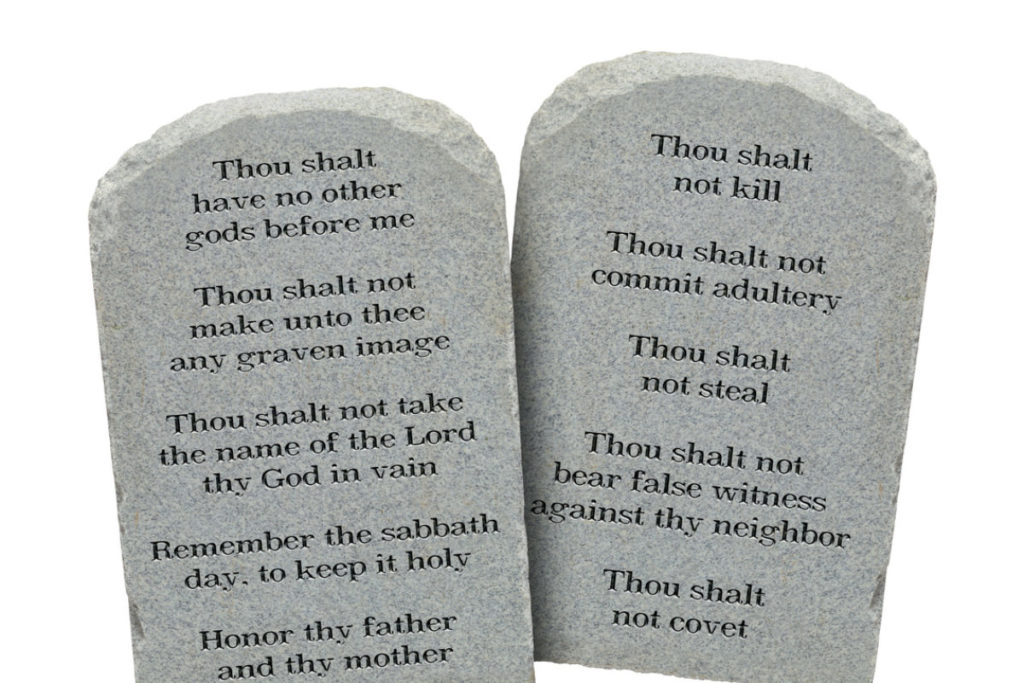The Ten Commandments, recorded in Exodus 20, often spark lively conversations about their relevance for believers today. While these commandments were part of a covenant given specifically to ancient Israel, Christians still uphold most of these moral principles; they resonate with the broader New Testament call to live in obedience and love. This article examines the enduring value of the Ten Commandments, highlights the unique role of the Sabbath, and explores how Jesus Christ fulfills the entire law; leading us into a deeper rest that transcends any single day.
1. The Ten Commandments and the Christian Faith
In Exodus 20, God delivered a set of ten foundational laws to guide Israel’s moral, ceremonial, and civil life. However, with the advent of New Testament Christianity, where believers are saved by grace through faith in Christ, many wonder how these ancient commandments apply. The key lies in understanding the old covenant versus the new covenant and recognizing how God’s unchanging character informs both.

2. Nine Out of Ten: Universal Principles Reaffirmed
Scholars often note that nine of the Ten Commandments reappear in the New Testament, reflecting moral absolutes that stem from God’s own holiness. Prohibitions against idolatry, murder, theft, and adultery, among others, are reiterated for Christians; these timeless principles safeguard human relationships and honor God’s character.
“Do not think that I have come to abolish the Law or the Prophets; I have not come to abolish them but to fulfill them.”
— Matthew 5:17
Jesus’ statement clarifies that the moral core of the law remains; it is neither discarded nor negated. Instead, it is perfected through Christ’s teachings and sacrifice, which underscore love, mercy, and inward transformation over mere rule-keeping.
3. The Sabbath Fulfilled in Christ
Of the Ten Commandments, the directive to “remember the Sabbath day, to keep it holy” (Exodus 20:8) does not appear in the New Testament as an ongoing requirement for Christians. Rather than being an oversight, this omission signals a shift in focus:
- A Symbolic Day of Rest – Under the old covenant, the Sabbath required cessation from work on the seventh day; it foreshadowed a greater rest God intended for His people.
- The New Covenant Fulfillment – In Hebrews 4, Scripture speaks of a superior “Sabbath-rest” available through Jesus, who completed the work of salvation.
- Christ’s Invitation – Matthew 11:28–30 highlights Jesus offering rest for the weary; this rest is not confined to a specific day. It is an eternal Sabbath found in His finished work.
4. Living Under the New Covenant: Grace and Transformation
The Bible’s portrayal of the Ten Commandments, nine universal moral laws and one symbol pointing to Christ, demonstrates the transition from law-based living to grace-based faith. Christians are not bound to the ceremonial regulations of ancient Israel; instead, they are called to follow the Holy Spirit’s guidance, which writes God’s moral law on their hearts (Hebrews 8:10).
- Internal Transformation
The new covenant emphasizes inward change rather than external rule-keeping. Believers obey God from a place of love and gratitude; not as a means to earn righteousness, but as a joyful response to Christ’s sacrifice. - A Spirit-Led Life
Walking in step with the Holy Spirit ensures believers naturally fulfill the righteous requirements behind the commandments. The Spirit’s work moves beyond legalism, cultivating genuine holiness and godly character.
5. Resting in Jesus: The Ultimate Sabbath
Christ’s role as our Sabbath rest underscores a key principle of Christian living: true rest is not about adhering to a strict day of rest or relying on personal efforts for salvation; it is found in a person—Jesus Himself. When believers trust in the finished work of Christ, they enjoy peace with God (Romans 5:1) and are freed from the burden of self-righteous striving.
Practical Implications
- Worship Any Day: Since Jesus fulfilled the Sabbath, worship is no longer confined to a particular day. Believers gather on Sundays or other days, celebrating the risen Lord.
- Spiritual Rest: Resting in Jesus provides relief from guilt, fear, and legalistic burdens; the emphasis is on abiding in His grace and love daily.
- Living Out Moral Principles: The moral truths of the Ten Commandments—especially the nine reaffirmed in the New Testament—remain vital guidelines for how believers relate to God and each other.
The Commandments Through the Lens of Christ
For the modern believer, the Ten Commandments still matter, not as a legalistic checklist, but as timeless reflections of God’s character; they align naturally with Christ’s law of love. The Sabbath command, uniquely fulfilled in Jesus, illustrates how believers are to shift their focus from outward observance to inward reliance on the finished work of Christ.
By acknowledging these commandments as universally binding and recognizing Jesus as our true rest, Christians find the freedom to live out God’s moral will in the power of the Holy Spirit. Instead of striving under an old covenant framework, we enter a life of grace and transformation; this journey ultimately brings us closer to the heart of God, where we discover our eternal Sabbath in Christ alone.







